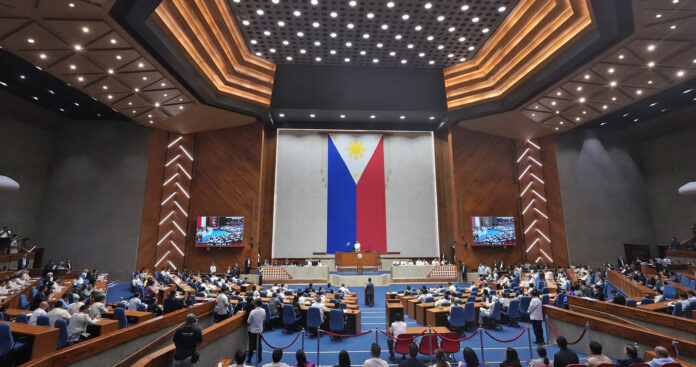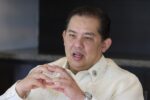Appropriations Chair Mika Suansing Announces Abolition of “Small Committee”; Speaker Romualdez Leads Push to Restore Trust, Transparency, and Public Participation
The House of Representatives, under the leadership of Speaker Ferdinand Martin G. Romualdez, is embarking on a bold and comprehensive reform agenda aimed at transforming the national budget process into one that is transparent, inclusive, and fully aligned with the principles of democratic accountability.
In a press conference today, Nueva Ecija Representative Mika Suansing, Chairperson of the House Committee on Appropriations, announced that the chamber is doing away with the long-standing practice of forming a “small committee” to finalize institutional amendments after second reading approval of the General Appropriations Bill (GAB).
“This marks a major turning point. The so-called ‘small committee’—a mechanism that has long been mischaracterized and misunderstood—will be officially scrapped. We are replacing it with a process that unfolds in full view of the public,” Suansing declared.
Reform 1: Abolishing the Small Committee
For decades, the small committee served as a post-second reading body to review budgetary adjustments requested by government agencies. But over time, it became a lightning rod for criticism, painted—often unfairly—as a secretive enclave for last-minute insertions.
Suansing said that “institutional amendments include amendments that benefit the general public as a whole, like social services, health, education, allowances and benefits of uniformed personnel, among others.” She further added, “these proposed institutional amendments must be supported with the necessary documentation and shall be discussed openly during committee hearings.”
Effective immediately, all institutional amendments must be proposed, discussed, and approved in the plenary before the GAB passes second reading. Once the bill clears second reading, no further amendments will be entertained, aligning the budget process with how all other legislation is handled.
“Wala nang tagong komite. Wala nang huling minuto. Bubuksan na natin ang tabing sa usaping badyet,” Suansing emphasized. “From now on, the people will witness the process in real time—because this is their budget.”
Reform 2: Adjusting the Budget Calendar for Deeper Plenary Deliberation
In support of the new rule, the House will also consider adjustments to the budget calendar to ensure that Members have enough time to thoroughly review and refine the budget during the plenary period before second reading.
“We are committed to deliberating smarter, not just faster. Better budget scrutiny means better public service delivery,” Suansing said.
Reform 3: Opening Bicameral Conference Committee Proceedings
Speaker Romualdez has also thrown his support behind a landmark proposal to open the bicameral conference committee meetings to the public, breaking long-held norms of closed-door negotiations between the House and Senate.
“The bicam shouldn’t be the curtain call of transparency—it should be its final act,” Suansing said. “We support Speaker Romualdez’s call for open bicam sessions so that the public sees how final budget figures are decided.”
Reform 4: Civil Society as Budget Watchdogs
Another cornerstone of the Speaker’s reform program is the formal participation of civil society organizations and non-government actors as observers during all stages of the budget process—from agency presentations to plenary deliberations and bicameral meetings.
“We are replacing archaic processes that placed budget power in the hands of a chosen few. From now on, we want everyone involved,” Suansing stressed. “The budget is the people’s money. They deserve to see how every peso is allocated, every program justified, and every decision made.”
Reclaiming Trust Through Structural Change
The reforms, taken together, reflect a decisive response to mounting public pressure for transparency, fairness, and results in government spending. While the budget has always been one of Congress’s most important responsibilities, it has also been one of the most misunderstood. Speaker Romualdez believes this is the right moment not just to respond—but to lead.
“This isn’t about optics. It’s about outcomes,” Suansing said. “These changes aren’t just procedural—they are political, moral, and constitutional commitments to restore faith in how public funds are handled.”
She concluded:
“This is not just reform. This is transformation. Under the leadership of Speaker Romualdez, the House is opening its doors, lifting the curtain, and bringing the people back to the center of the budget process where they rightfully belong.”







